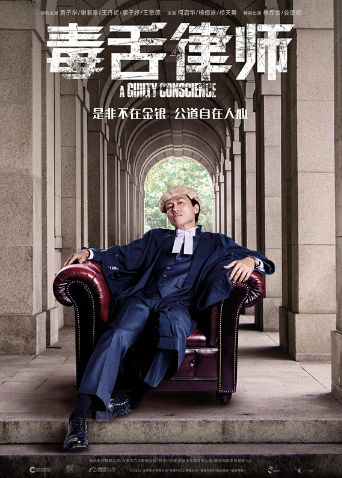城里女孩家里遇到经济危机,视频搬到乡下父亲购买的南瓜农场,试图重新运作起来,在这里她找到了目标和爱情。
城里女孩家里遇到经济危机,视频搬到乡下父亲购买的南瓜农场,试图重新运作起来,在这里她找到了目标和爱情。

回复 :剧作家苏雨写的剧本《奋斗者》上演后,受到社会舆论的批评。他决定到生活中去调查研究,以证是非。在某法院,院长介绍他认识了审判员解稼芬,并让他以人民陪审员身份参与调解一起正在审理的离婚案。要求离婚者是中年雕塑家莫磊。莫磊的妻子叫池波,她在病床上含泪向苏雨诉说了他们家庭的变化:她和莫磊是雕塑系的同学,彼此相爱,曾发誓要以屈原的《九歌》为题材,雕塑出永留人间的艺术群像。她爱莫磊,更爱他的艺术才华,她承担起全部家务劳动,支持丈夫专心致志地进行创作。哪知莫磊成名后另寻新欢,家庭悲剧给池波带来无限的痛苦,但苏雨看到,他面前这位瘦弱的女性虽承受着不幸,却带着孩子坚强地挣扎着、奋斗着,并一心雕塑少年保护神--少司命,以实现年轻时和莫磊一起许下的诺言。苏雨还了解到第三者叫宁莉莉,是莫磊的学生和热情助手。她明知莫磊有妻子孩子,但并不认为自己的行为有什么错误,因为她对爱情有自己的观点,认为爱情不应该受什么条约和义务的约束。然而人们看到宁莉莉在她纺织的情网中很少有欢乐的时候。她忧虑地期待着莫磊,而莫磊又有难言之隐,始终没有答应她的要求,这使狂热的宁莉莉感到失望和伤心。法院的态度,道义的谴责,孩子的呼声,使他们双方陷入了痛苦的深渊。最后在解稼芬和苏雨的帮助下,尤其当池波从雕塑架上摔下,女儿因找爸爸落入湖中时,他们的感情受到强烈震动。莫磊悔悟了,带着愧疚的心情到医院看望了病中的妻子,宁莉莉终于发现此路不通,背上画夹,离开城市,走向新的生活。在审理这一案件中,苏雨本人实际上也是个被审者,因为在爱情和家庭问题上,他和莫磊在走着同一条路,所不同的只是远近而已都有了新的认识。他决心重新写一个剧本,并在家庭生活中弥补自己的过失。他意识到了一个作家的社会责任,一个丈夫对妻子、对女儿的家庭责任。他毅然否定了《奋斗者》,并陪同妻子到剧院观看了自己的新作《再塑一个我》。
回复 :改编自好莱坞电影《驳命来电》(Cellular)。这天和平日一样,身为工程师的单身妈妈Grace(徐熙媛 饰)拼命工作几乎通宵,次日送女儿婷婷上学。途中被霍德能(刘烨 饰)故意猛撞车身,Grace当场昏迷,醒来后发现已置身于一个密闭的货柜内。昏迷时她看见霍德能对她家大肆搜索并且杀害女佣,醒来后更被追问东西藏在何处。一无所知的Grace毫无办法,在悍匪离开后竭力地把一台损毁的电话接线,拨出给财务公司的阿邦(古天乐 饰)。阿邦面对Grace的苦苦哀求,随手把手机给交警辉Sir(张家辉 饰),由于听不清Grace的说话,辉警告阿邦别再胡闹。阿邦听到手机内枪声后意识到事态严重,决定帮助Grace。眼下第一件事就是拦截悍匪,他们正在前往学校企图带走婷婷以作威胁。悍匪第二个目标是找到Grace弟弟,他们相信他们的犯罪证据就在她弟弟手上。一路上阿邦被误认为劫...
回复 :Whenever I see La Paura I think of it as a companion piece to Eyes Wide Shut, or maybe it is the other way around. Adultery makes both films tick but in different ways. I think Phillip French was right on the money when he pointed out a Wizard of Oz thing in Kubrick's last work. Like Dorothy, Tom and Nicole go through fantasies and nightmares and at the end Dorothy's reassuring childish motto "there's no place like home" is ironically updated to the adult circumstantial adage "there's no sex like marital sex". Kubrick's take is intellectual, he never leaves the world of ideas to touch the ground. He taunts the audience first with an erotic movie and then with a thriller and refuses to deliver either of them. He was married to his third wife for 40 years, until he died. Rossellini was still married to Ingrid Bergman when he directed La Paura; they had been adulterous lovers and their infidelity widely criticized La Paura is a tale, a noirish one. The noir intrigue is solved and the tale has a happy ending. The city is noir; the country is tale, the territory where childhood is possible. The transition is operated in the most regular way: by car, a long-held shot taken from the front of the car as it rides into the road, as if we were entering a different dimension. Irene (Bergman) starts the movie: we just see a dark city landscape but her voice-over narration tells us of her angst and informs us that the story is a flashback, hers. Bergman's been cheating on her husband. At first guilt is just psychological torture but soon expands into economic blackmail and then grows into something else. From beginning to end the movie focuses on what Bergman feels, every other character is there to make her feel something. Only when the director gives away the plot before the main character can find out does he want us to feel something Bergman still can't. When she finds out, we have already experienced the warped mechanics of the situation and we may focus once again on the emotional impact it has on Bergman's Irene. In La Paura treasons are not imagined but real, nightmares are deliberate and the couple's venom suppurates in bitter ways. Needless to say, Ingrid has another of her rough rides in the movies but Rossellini doesn't dare put her away as he did in Europa 51, nor does he abandon her to the inscrutable impassivity of nature (Stromboli). His gift is less transcendent and fragile than the conclusion of Viaggio in Italia. He just gives his wife as much of a fairy tale ending as a real woman can have, a human landscape where she can finally feel at home. Back to the country, a half lit interior scene where shadows suggest the comfort of sleep. After all, it's the "fairy godmother" who speaks the last words in the movie.

